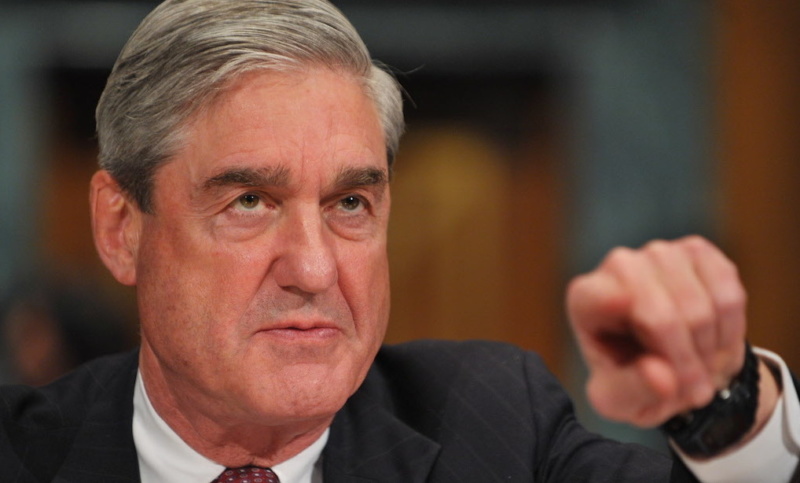Donald Trump and his advisors colluded with Russia and its intermediaries, and Trump obstructed or attempted to obstruct justice in eight cases, according to the 448 pages of the Mueller Report on Trump-Russia links.
But Trump has been saved from criminal charges by his aides’ refusal to carry out his orders, and by Special Counsel Robert Mueller’s decision not to pursue indictment of a sitting President.
See also Mueller Report Analysis: Yes, There Was Collusion and Obstruction of Justice
Obstruction of Justice
Mueller’s team considered 10 episodes where Trump might have obstructed justice from early 2017 through the start of this year. They found sufficient evidence for obstruction or possible obstruction — constituting the act, nexus with a criminal proceeding, and intent — in eight of them.
*The request to FBI Director James Comey from February 2017 to halt investigation of Michael Flynn
*The firing of Comey in May 2017
*The attempt from June 2017, through White House lawyer Donald McGahn, to fire Mueller
*The ongoing pressure on Attorney General Jeff Sessions to limit Mueller’s investigation
*Further pressure on Sessions to reverse his recusal — because of Sessions’ contacts with Russian Ambassador Sergey Kislyak in 2016 — from oversight of the investigation
*The order to McGahn in early 2018 to lie about Trump’s June 2017 effort to dismiss Mueller
*Trump’s interventions in the criminal cases of Flynn, former campaign manager Paul Manafort, and a third individual, hoping to limit their cooperation with Mueller’s investigation
*Trump’s intervention in the criminal case of his former lawyer and fixer Michael Cohen, who also cooperated with the Special Counsel
In some of the cases, Trump’s offense was mitigated by the refusal of aides to carry out his demands. Comey refused to end the investigation of Flynn. McGahn refused to call Deputy Attorney General Rod Rosenstein, formally overseeing the inquiry, with the command to remove Mueller. McGahn also refused to lie in early 2018 about Trump’s order. And Sessions would not reverse his recusal or issue directions to Mueller.
But Trump’s ultimate saviour — ironically, given Trump’s insults and lies about the Special Counsel and his team.
Mueller explains at the outset of the volume on obstruction that he did not take a “traditinal prosecutorial” approach — because he assessed that an indictment could be brought against a sitting President.
Attorney General Barr, speaking 90 minutes before the release of the report, did not mention Mueller’s findings of possible guilt in the eight cases. Instead, he tried to obscure the conclusions with the declaration that he disagreed with the Special Counsel’s “legal theories” and a vague assertion challenging the evidence.
That helped Trump’s attempt to bury the report, with false declarations and a Game of Thrones motif.
— Donald J. Trump (@realDonaldTrump) April 18, 2019
Collusion
After 23 months of investigation, the report — immediately dismantling Attorney General William Barr’s defense of Trump — sets out three areas of collusion, involving “numerous contacts” of Trump’s campaign and transition with Russian officials and WikiLeaks.
The most extensive documentation, albeit heavily redacted, is on the encouragement of WikiLeaks to disseminate material seeking to damage Democratic nominee Hillary Clinton. WikiLeaks received the e-mails from Russian operatives, after Moscow’s hacking of computers linked to Clinton’s campaign.
The Trump campaign knew from June of WikiLeaks’ possession of the material, and Trump as well as his advisors encouraged the release through the summer and autumn. While much of the evidence is withheld — probably because of the impending trial of Trump advisor Roger Stone, who liaised with WikiLeaks and its founder Julian Assange — the published material names Trump, campaign manager Manafort, and deputy campaign manager Rick Gates.
A second area of collusion involves the Trump transition team’s meetings with Kirill Dmitriev, the Kremlin-connected CEO of a $10 billion sovereign wealth fund. The talks included Dmitriev’s meeting in January 2017 with Erik Prince, the founder of the mercenary group Blackwater, and contacts with Trump’s son-in-law Jared Kushner and campaign manager Steve Bannon.
The third is the story behind the downfall of Michael Flynn, who resigned as Trump’s National Secretary Advisor in February 2017 and has been convicted of lying to the FBI.
On December 29, 2016, Flynn spoke by phone five times with Russian Ambassador Kislyak, discussing how to limit US sanctions on Moscow that had been imposed by the Obama Administration that day — because of Russia’s interference in the election.
The report sets out that Flynn acted at the behest of senior Trump advisors, including Kushner, Bannon, and K.T. McFarland, later Deputy National Security Advisor. Mueller could not establish if Trump knew in advance of the calls.
The damage to Trump has been limited by Mueller’s precise definition of the scope of his report. The Special Counsel said that his team was not pursuing “collusion”, which has no standing as a legal term, but the criminal charge of “conspiracy”.
Because the collusion with WikiLeaks and the Russian officials did not constitute a coordinated plan over Moscow’s interference, Mueller’s standard for conspiracy was not met.
This allowed the Attorney General to focus on that outcome, rather than the rest of Mueller’s findings, in his presentation.
But Barr went farther with the misleading claim that the Special Counsel had found “no collusion”. Initially, he asserted this with respect to Russia’s hacking from March 2016 — where not even critics of Trump had claimed any campaign involvement. However, the Attorney General then slid into a general assertion of absolution.

